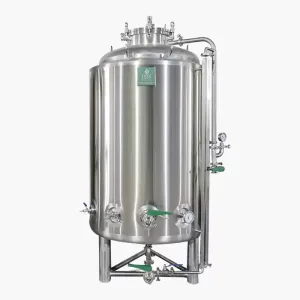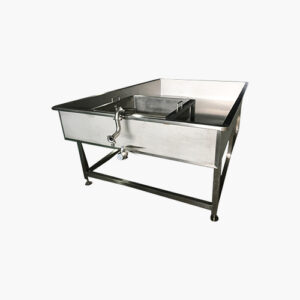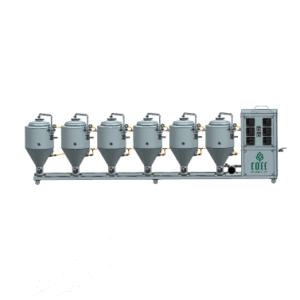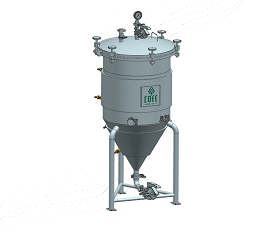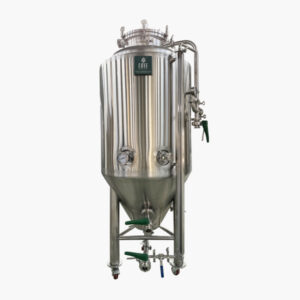COPYRIGHT © 2022 NingBo COFF Machinery Co, ltd. ALLE RECHTE VORBEHALTEN
Menü
Kategorien
Hersteller von handwerklichen Brauereianlagen
Über uns
Hersteller von handwerklichen Brauereianlagen
There are many suppliers of beer brewing equipment, especially with the surge of new breweries over the past decade. If you’re looking to save even more on your budget, consider purchasing brewing equipment directly from manufacturers in China or elsewhere.
COFF is one of the top brewing equipment manufacturers in China, and we offer customized turnkey solutions to meet your needs. If you’re interested in ordering brewing equipment from COFF, please don’t hesitate to reach out. Just let us know your desired daily output or capacity, and one of our engineers will get back to you within 24 hours.
Hersteller von handwerklichen Brauereianlagen coff's craft brewing equipment
craft brewing equipment guide by COFF
Aquire all kinds of knowledge from professional China craft brewing equipment manufacturers

craft brewing equipment material
stainless steel, particularly 304 grade, is the preferred material for craft brewing equipment due to its hygiene, durability, cost-effectiveness, and suitability for the brewing process.
Safety and Hygiene
Since stainless steel is an inert metal, it won’t corrode when it comes into contact with water. Additionally, stainless steel is easier to clean and has a smooth, flat surface that does not readily harbor bacteria.
All of COFF’s equipment is constructed entirely of certified stainless steel.
Cost-Effectiveness:
Although there are other materials, such as copper and better grades of stainless steel (such as 316), 304 stainless steel provides a decent trade-off between price and performance.
Industry Standard
For contemporary beer brewing, stainless steel is the material of choice. The mash tuns, fermenters, brew kettles, and brite tanks that COFF utilizes are usually made of ASME SA-240 S31603 stainless steel, which is a premium, food-grade stainless steel.
Comparison of other materials
craft brewing equipment capacity
When determining the appropriate craft brewing equipment for your brewery, the scale of your operation is a primary consideration.
1. Determining Your Brewery Scale
Production Volume Targets: The most crucial factor is your anticipated monthly and yearly beer production in barrels (bbl) or hectoliters (HL). Consider peak demand, seasonality, and your future growth plans. COFF offers commercial brewery equipment ranging from 5bbl to 100 bbl. They also mention equipment for smaller scales, like microbrewery system and nano brewing systems.
Budget: Your available capital will significantly influence the initial equipment scale you can afford. Ningbo Coff highlights providing cost-effective brewing vessels.
Physical Space and Layout: The available production floor space, ceiling height, and doorway access will impose constraints on the size and configuration of your equipment. Professional manufacturers – COFF can design the brewery layout according to your capacity and site conditions.
Beer Varieties: The types of beers you plan to brew will also impact equipment needs.


2. Equipment Considerations Based on Scale
Brewpub / Microbrewery (500 to 5,000 barrels annually): Typically uses a 3-vessel direct fire brew house, simple fermentation, brite tanks. For start-up microbreweries, a brewhouse capacity of 10-30 BBL is common, along with fermentation and bright tanks of similar size. COFF also offers nano brewery equipment with a capacity as small as 1BBL, suitable for transitioning from home brewing to commercial brewing with a limited budget.
Regional/Craft Brewer (5,000 to 30,000 barrels annually): Often employs a 4-vessel steam brew house, glycol cooling, automatic filtration.
Expanded Regional Brewer (30,000 to 200,000 barrels annually): May utilize a multi-vessel automated brew house.
3. Consult a brewery design consultant
It’s crucial to match equipment capacity to your production volume targets. COFF has experienced brewery design consultants for sizing equipment suited to your specific production goals.
COFF provide craft brewing equipment heating method
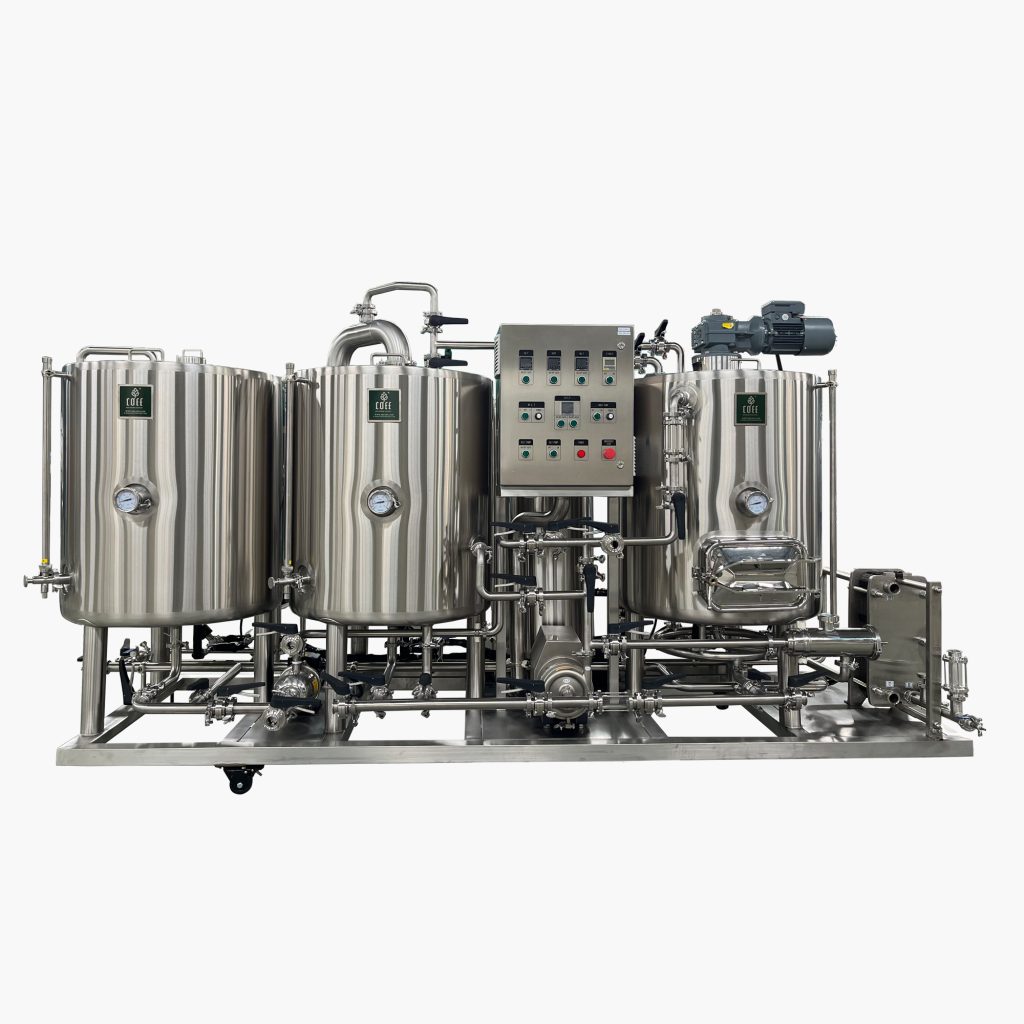
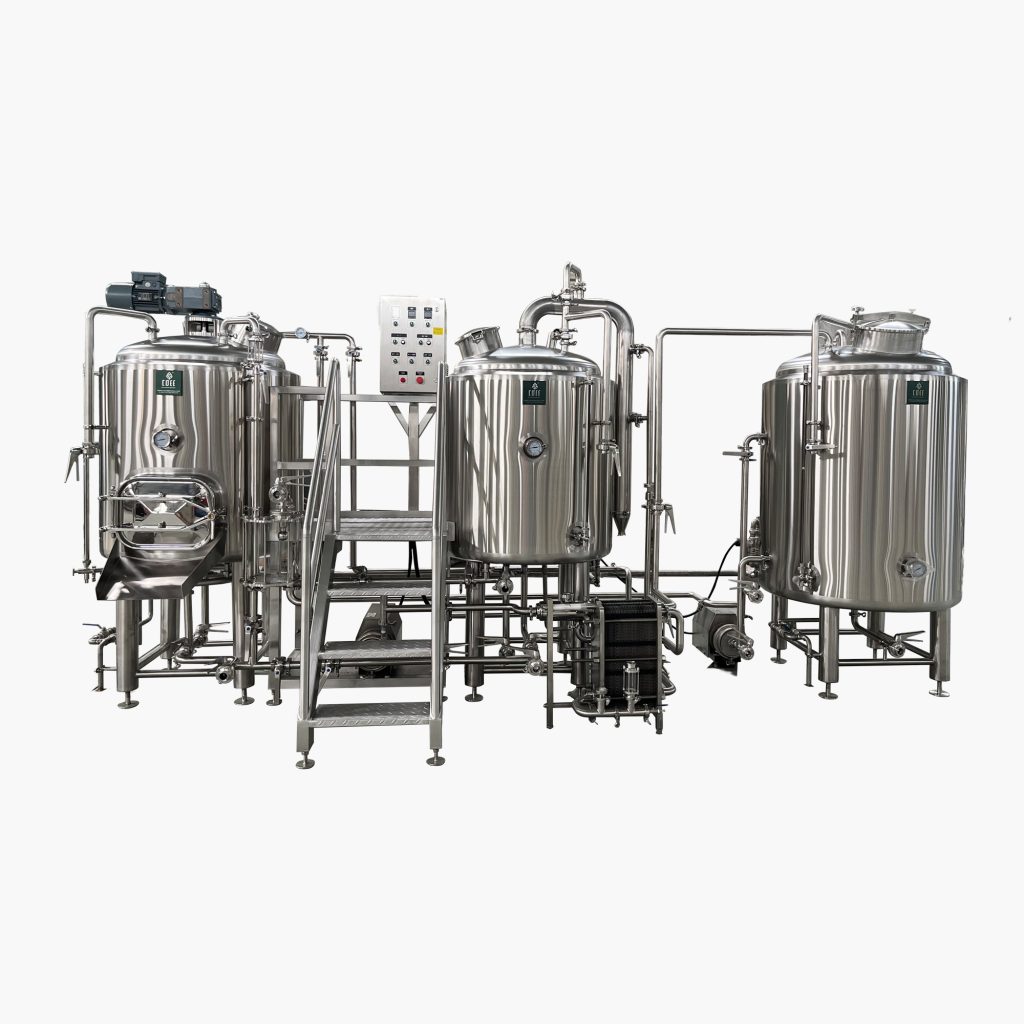

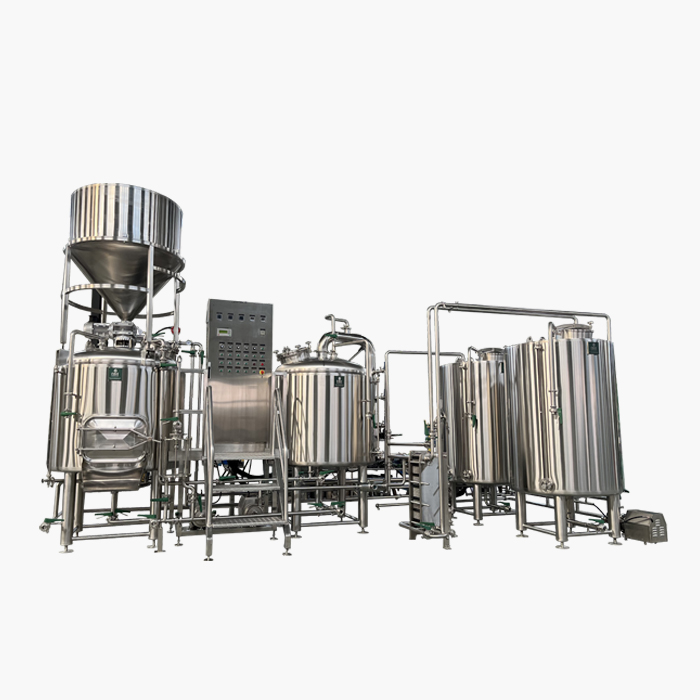
Compared to traditional steam heating methods, Coff’s cutting-edge thermal oil heating brewhouse provides more possibilities for reducing energy consumption while achieving the same or better working performance.
The industry norm for bigger brewery systems (15 barrels and more) is often steam heating. COFF provide 3-30bbl steam heating system.
It heats up fast and quite evenly. Its highest cost and the need for a separate boiler for purchase and upkeep are its drawbacks.
Direct fire heating might be the least expensive choice for smaller systems, such as tiny craft breweries making the switch from home to commercial production.
Direct fire heating is not appropriate for systems larger than 10 barrels, and it has disadvantages like focused heat and reduced energy efficiency.
Electric heating is less expensive and uses less energy than steam heating. The drawbacks include the potential for increased electricity prices, the need for a big power source, and the incompatibility with huge systems.
Choose craft brewing equipment manufacturers

Reputation and Experience
Ningbo COFF is a “top professional designer and manufacturer” with a history of serving international markets and a high rate of customer referrals and long-term relationships.

Range of Equipment and Services
COFF offers “complete commercial brewing systems”and brewery consultation, design, layout services, and installation support.

Automation and Control Systems
Determine the level of automation you require (semi-automatic or fully automated). Ningbo COFF provides “user-friendly panel” that supports multi-step procedures.

Testing and Quality Control
Ningbo COFF has “fully functional FAT capabilities and at least 2 times operation tests before delivery

Customization and Flexibility
COFF can customize equipment to your specific brewing needs and production goals.

Safety and Hygiene
COFF uses “sanitary construction with food grade valves, sanitary welds and tri-clamp fittings”.

Post-Sales Service and Support
coff states we provide “one-to-one technical guidance and post-maintenance”.

Factory Visit
Coff welcomes customers to visit our factory at any time

